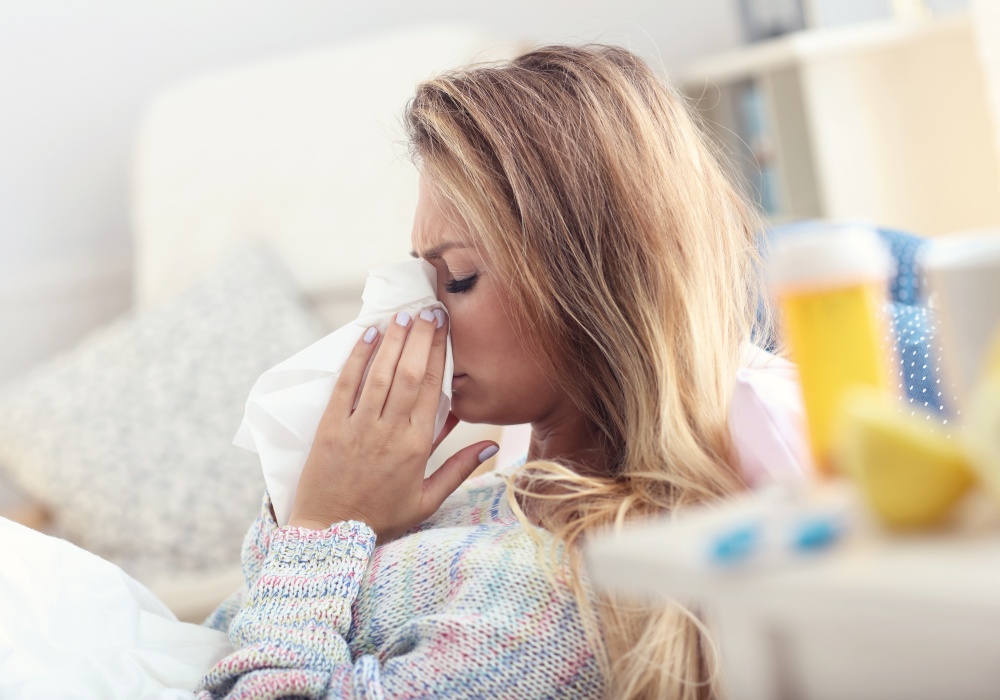
Is it the Flu, COVID-19, Allergies or a Cold?
If you start feeling sick, you may be quick to think you may have COVID-19, but the flu, allergies and colds haven’t gone away.
While COVID-19, the flu and the common cold are all caused by viruses. There are some differences in the symptoms of each. According to the Mayo Clinic, the symptom checks are:
| COVID-19 | Flu | Common | Cold | Allergies |
|---|---|---|---|---|
| Cough | Usually (dry) | Usually | Usually | Sometimes |
| Muscle Aches | Usually | Usually | Sometimes | Never |
| Tiredness | Usually | Usuall | Sometimes | Sometimes |
| Sore Throat | Usually | Usually | Usually | Rarely |
| Runny or stuffy nose | Usually | Usually | Usually | Usually |
| Fever | Usually | Usually ─ not always | Sometimes | Never |
| Nausea or vomiting | Sometimes | Sometimes (more common in children) | Never | Never |
| Diarrhea | Sometimes | Sometimes (more common children) | Never | Never |
| Shortness of breath or difficulty breathing | Usually | Usually | Sometimes | Sometimes |
| New loss of taste or smell | Usually (early ─ often without a runny or stuffy nose) | Rarely | Sometimes (especially with a stuffy nose) | Sometimes |
| Itchy nose, eyes, mouth or inner ear | Never | Rarely | Rarely | Usually |
| Sneezing | Rarely | Rarely | Usually | Usually |
| Pink Eye | Sometimes | Sometimes | Sometimes | Sometimes |
If you get sick and suspect you have COVID-19, you should contact your health care professional right away. When you are ill, you should take time to rest and let your body heal. Make sure you stay hydrated and treat yourself with over-the-counter products as recommended by your doctor. Avoid over-exertion, caffeine, alcohol and smoking.
If you find yourself in a serious health crisis or a life-threatening emergency, call 911.